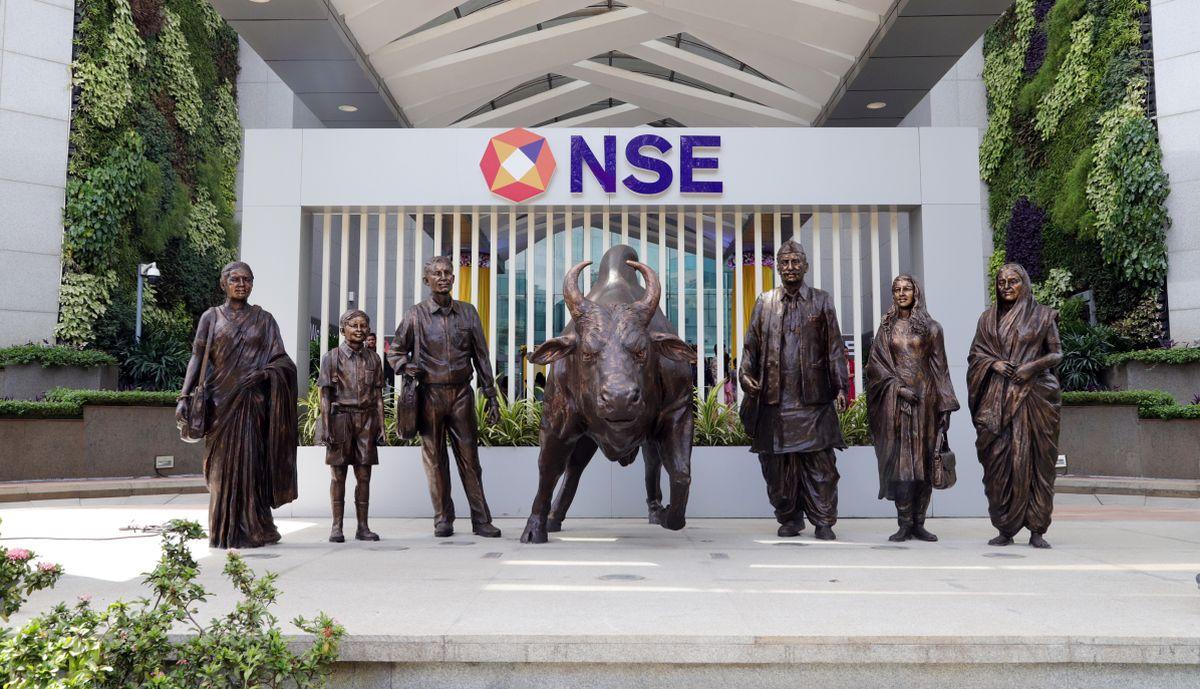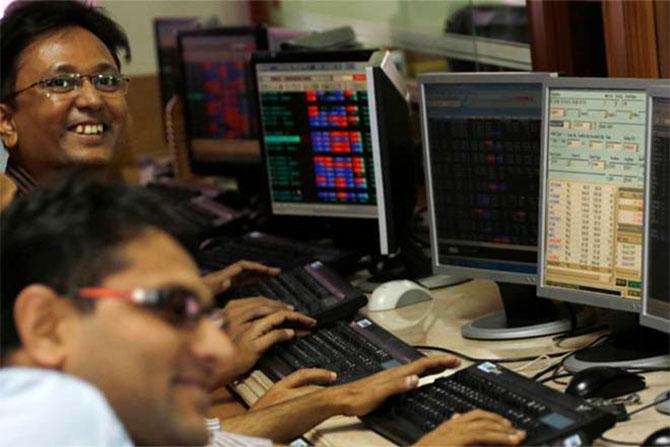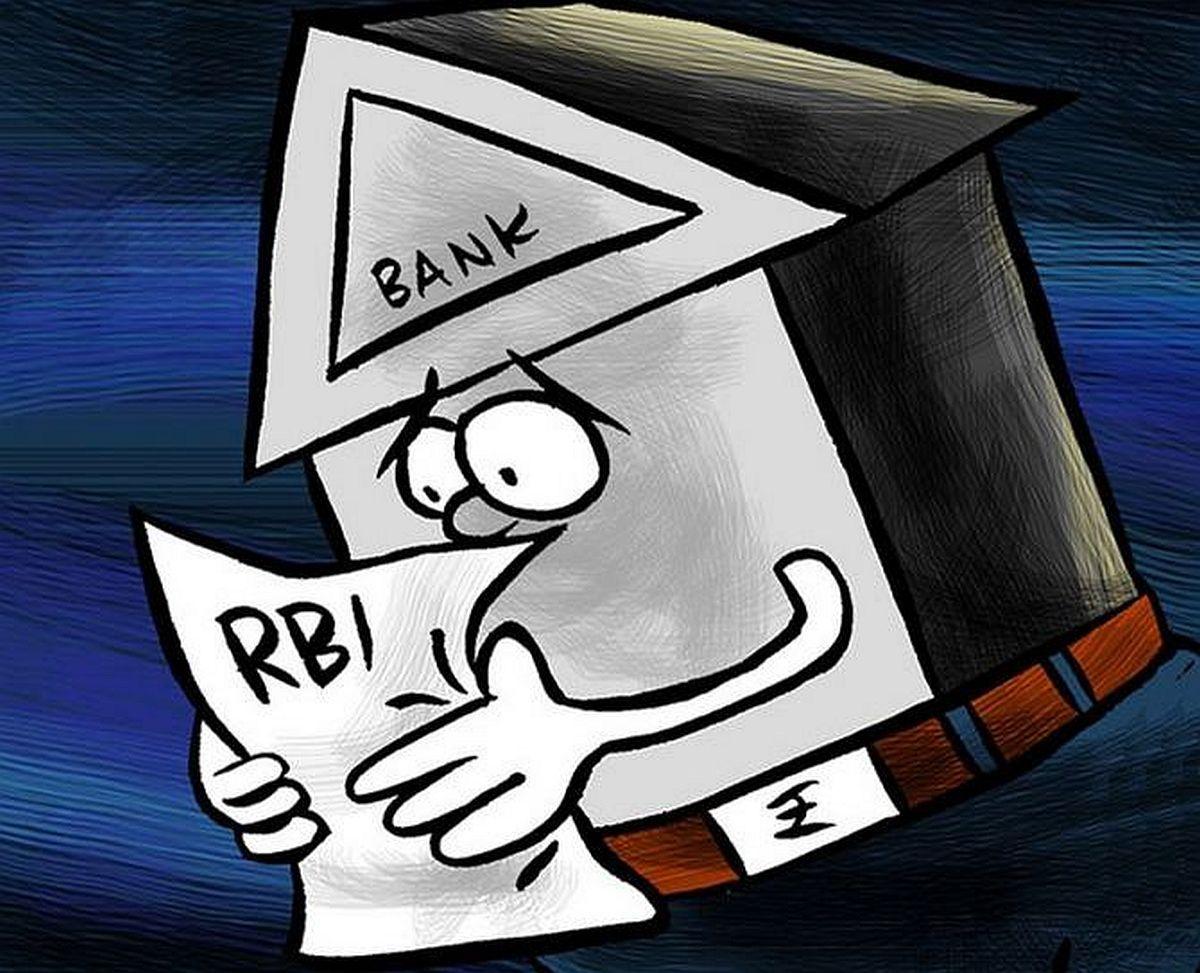The surge in the market price is also attributed to demand by retail and high-networth individual investors ahead of the IPO.

IMAGE: The National Stock Exchange headquarters in Mumbai. Photograph: ANI Photo
The price of unlisted shares of the National Stock Exchange (NSE) shot up 32 per cent last week, going from Rs 1,775 to Rs 2,350 apiece.
The rise is partly due to expectations of the the NSE’s initial public offering (IPO), according to analysts.
The exchange has a market valuation of Rs 5.8 trillion, according to reports. Since September 2021, the stock’s price has surged over 200 per cent.
The surge in the market price of unlisted NSE shares is also attributed to demand by retail and high-networth individual investors ahead of the IPO, according to Prashanth Tapse, senior vice-president for research at Mehta Equities.
“The surge is also driven by expectations of substantial listing gains, coupled with a significant demand-supply imbalance in the unlisted space. If a no-objection certificate is granted and listing progresses as anticipated, the price of NSE shares in the unlisted market could see further upside,” said Tapse.
It was once challenging for retail investors to access NSE shares due to complex transfer procedures, said Manan Doshi, cofounder of UnlistedArena.com.
“However, since the shares became freely transferable after being unfrozen in late March, many retail investors have entered the market.”
For investors who have an appetite for risk and can buy and hold for the long term, NSE’s shares in the unlisted market appear attractive from a valuation perspective compared to BSE’s listed shares, said analysts.
Valuation & strategy
“Based on recent transactions, the current share value implies a price-to-earnings (P/E) multiple of 40x for FY26E (estimated) and 35x for FY27E earnings. In contrast, BSE is trading at a notably higher valuation of 60x and 52x for the above-mentioned periods. This indicates that NSE is available at a healthy discount to its listed peer, reinforcing expectations of potential listing gains when the IPO materialises,” Tapse said.
Doshi echoed this view, adding that despite the recent rally NSE’s valuations remain reasonable compared to BSE.
NSE is trading at a P/E of around 45x based on FY25 earnings per share (EPS), while BSE is at approximately 75x. In relative terms, NSE’s valuation seems moderate.
NSE-listed BSE, too, has seen investor interest. Earlier in May, BSE joined an elite club of stocks that have a market capitalisation of Rs 1 trillion or more.
“Investors can buy the unlisted shares of NSE now. The valuations are cheaper now compared to its listed peer, and the NSE is still an unquestionable leader in the stock market,” said G Chokkalingam, founder and head of research at Equinomics Research.
“Further, the capital market business is a perennial growth story, and since it’s a duopoly market, there is a very assured business for the two players,” Chokkalingam added.
Another factor impacting NSE’s stock price is the recent announcement by the Securities and Exchange Board of India that equity derivatives contracts will now be limited to expiries on only two days a week, either Tuesdays or Thursdays.
In January 2025, BSE moved its index options expiry to Tuesday and NSE continued with Thursday expiries.
This shift helped BSE gain notable traction in index options premium turnover, with its share rising from 16 per cent to 23.6 per cent in April, according to Goldman Sachs.
If Sebi permits NSE’s plea of Tuesday expiries, BSE will have to work to retain its recent gains in market share, analysts said.
Goldman Sachs expects BSE to switch back to Thursday and see a decline in option premiums by 4 percentage points.

Feature Presentation: Aslam Hunani/Rediff.com




